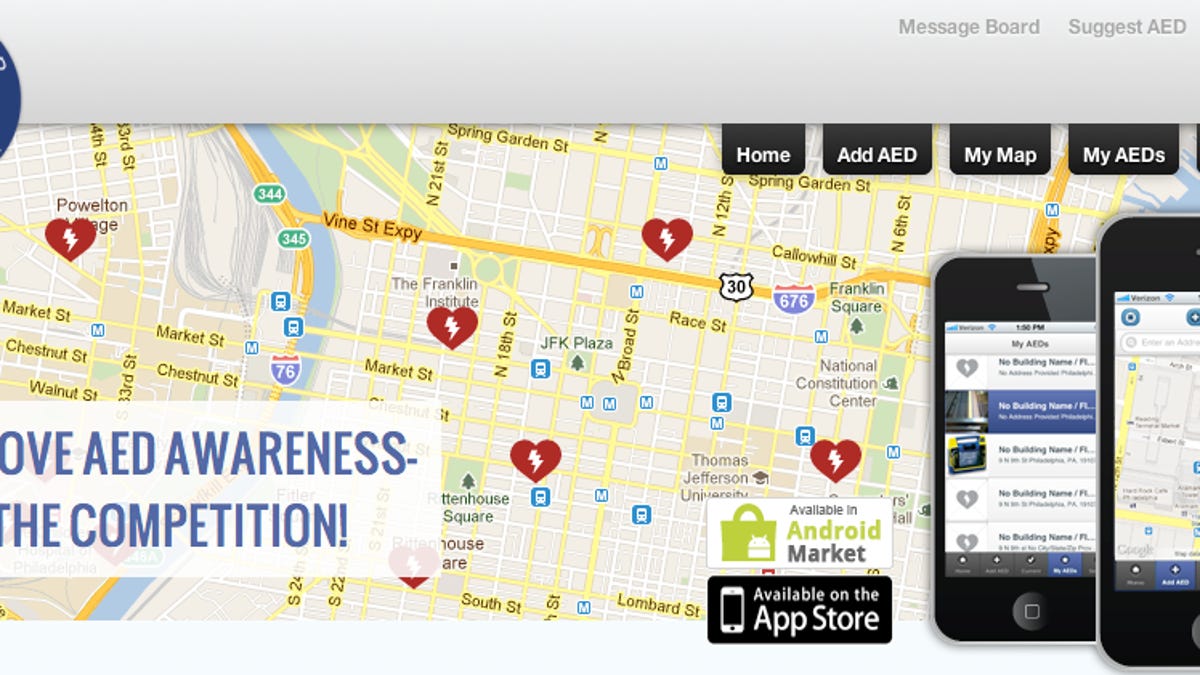Philly challenge to map thousands of AEDs could go national
The MyHeartMap challenge encourages laypeople to hunt down life-saving automated external defibrillators and use their smartphones to transmit photos and locations to researchers building a database.

In an effort to quickly and efficiently map the roughly 5,000 automated external defibrillators (AEDs) in public areas of Philadelphia, researchers at the University of Pennsylvania's Perelman School of Medicine recently launched a contest to award $10,000 to the team or person who finds the most.
With the six-week contest, which kicked off in late January, nearing its March 13 deadline, researchers are already planning to conduct a similar, nationwide challenge.
AEDs can save the lives of those suffering cardiac arrests via electric shocks, particularly if used in the first minutes following the onset of the attack. And while these devices are all around us, having been installed at schools, offices, airports, and the like, no one has yet to develop a comprehensive map of their locations.
The MyHeartMap Challenge in Philly uses a free app (available on iPhone or Android devices) for participants--registered as either individuals or teams--to find and photograph AEDs in Philadephia. The person or team who finds the most will walk away with a $10,000 prize, while those who are the first to find any of 200 "golden" AEDs will receive $50.
Researchers intend to use the data collected throughout this challenge to develop a database of the locations of public AEDs throughout the Philadelphia region, of which there are thought to be around 5,000. (To date, participants have found almost 800.)
Researchers will then turn this database into an interactive AED registry that is part of the city's 911 call system and accessible by app to help users locate the nearest public AED in the event of an emergency. "That will put the lifesaving devices in the hands of anyone, anywhere, anytime," the researchers write.
Project collaborators, including Penn's Center for Resuscitation Science, MIT, the University of Washington, and Children's Hospital of Philadelphia, say their next goal is to create a national registry via a similar challenge that will encourage participants to use Facebook, Twitter, and the like to enlist more friends.
In a news release, the researchers are already encouraging interested parties to "start strategizing and forming teams now so they can be first out of the gate to win."

